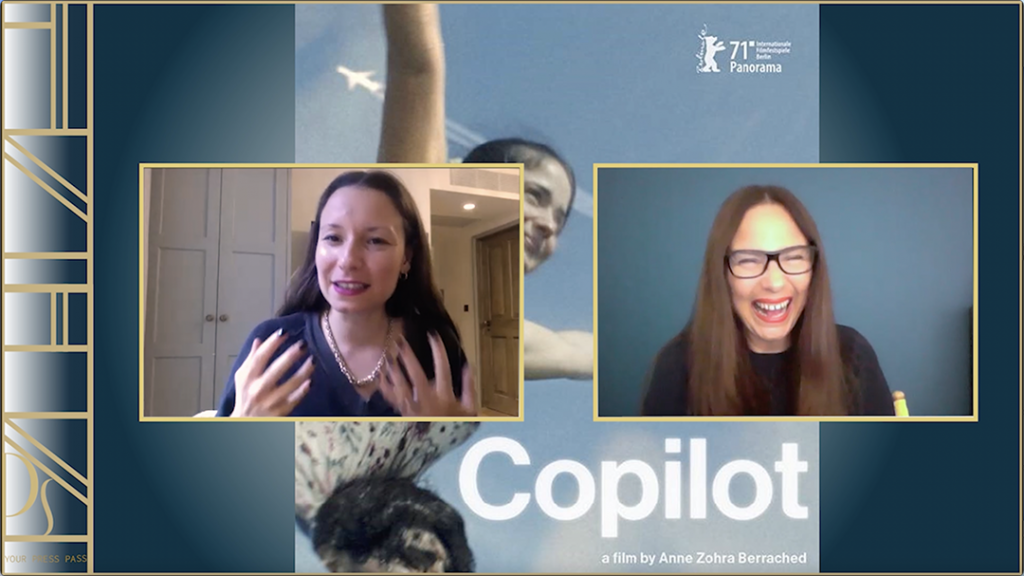
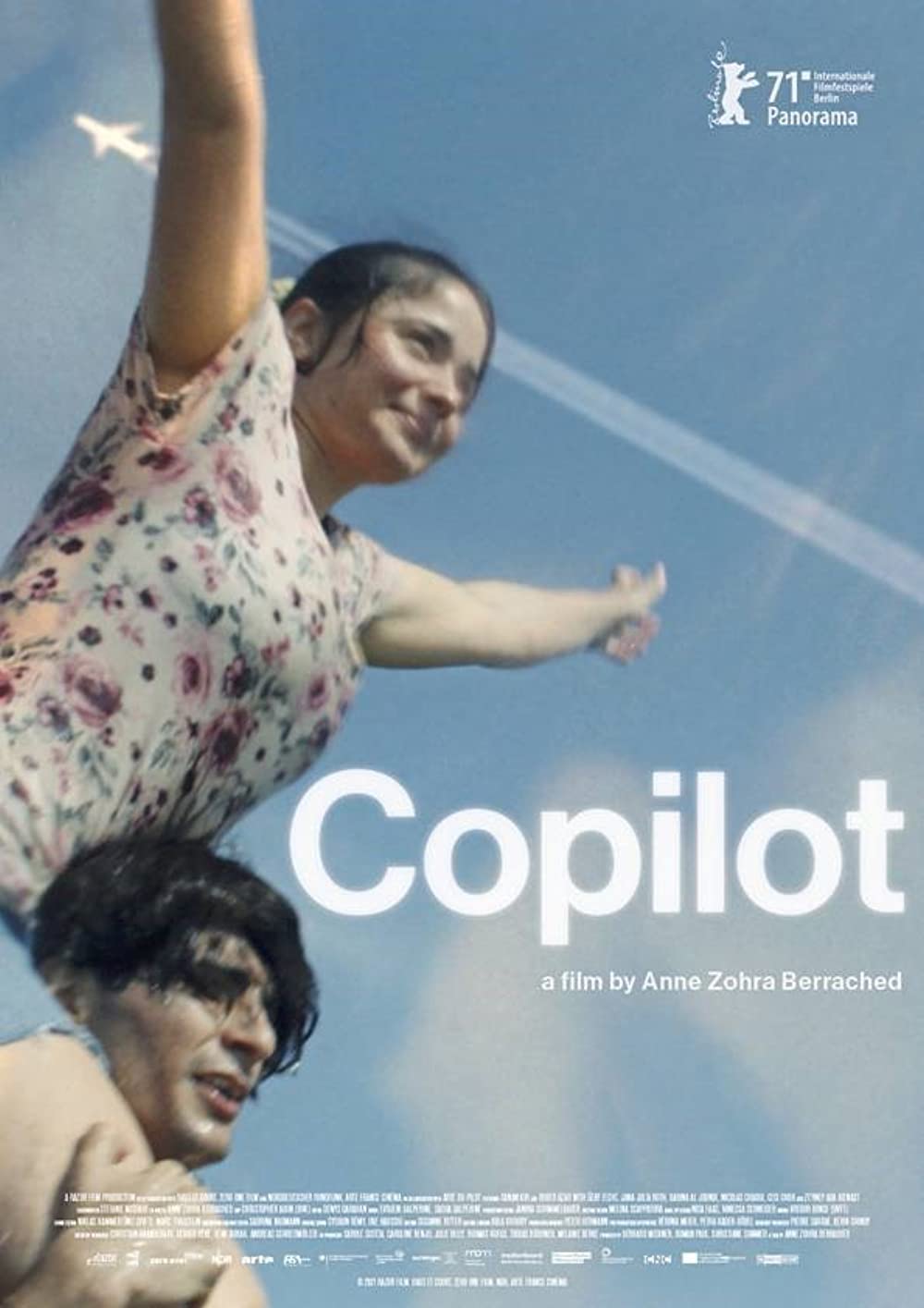
At A Glance
For Star-crossed lovers Asli and Saeed it was love at first sight, their bond defies their cultural differences but as time passes do they really know each other?

Film Details
Directed by Anne Zohra Berrached
Written by Anne Zohra Berrached, Stefanie Misrahi
Released by Modern Films
2021, 118 minutes,
In cinemas 10th September
Cast
Canan Kir as Asli Bilgin
Roger Azar as Saeed Awad
How many of us have experienced that all-encompassing love, passion, obsession? But how do we act when instinctively we know something isn’t right, yet we cannot bring ourselves to instigate change? Director Anne Zohra Berrached explores the question do we really know the person we love? Having some questions of my own, it was my utter pleasure to delve deeper into this story and her unique filmmaking process.
I’m very keen to talk to you about Copilot because this is a very complicated love story isn’t it, but maybe you’d like to explain a little bit more about the plot and the motivation for making it?
Yep, Copilot is a film about love, it’s about relationships and it’s about the topic, how much you know your partner even though we maybe think we know the other one because we are together for a long time. It happens that we discover parts in the other one which we don’t know, which we have never thought of. And this is basically the topic of
my film. And the film is going to develop in a totally different way and I don’t want to tell you too much because I know that I am from Germany, and in Germany there was a German release already from the film, and the people told me to watch the film without knowing the topic is the best (laughs). It’s the best way of watching it.
There is a really excellent payoff and in fact you give us tiny breadcrumbs alluding to that whole evolution at the end, very subtly and very well, but I certainly won’t give that away, I won’t spoil the surprise for the UK audiences.
And for you, you are a documentarian and without giving too much away there are certain facts that you need to adhere to, so is it important for you within the context of the story to have your facts accurate for this film as well?
Absolutely, I am really very precise with all the research of the case. And this film is based on a really very well-known person, we don’t want to say who it is, we all know this person and this person changed the 21st century tremendously for the whole world.
It certainly did. And can you speak a little bit about Canan (Kir) she is such an incredible actress, there’s this whole inner life that she’s kind of brooding, there is a stillness in her performance but it also speaks volumes doesn’t it?
Right, right, yeah. This was kind of the topic of my film and also the challenge for me and the script writer Stefanie Misrahi. We both had a big sometimes difficulty to write the script and to have a film based on a character who doesn’t change. What will be the feeling inside you that you want to shake her, but you want to change, that she is reacting in a different way to her husband, but she doesn’t, she is who she is and she stays like that. And she is fighting for love in big way and really long and sometimes you may think why don’t you do it differently, but she does it like this and later we see where it leads for her, where this characteristic in her leads her.
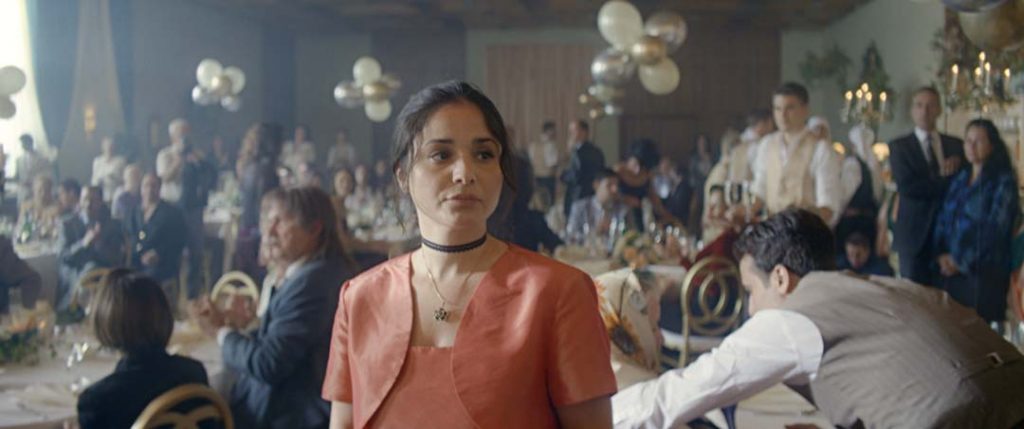
And can you talk to us a little bit about the casting process as well?
Right, yeah. It was huge casting I need to say. It wasn’t important for me to cast actors, it could be also non actors. For me it is always important as a director that the person who is in front of the camera really feels the moment. I think it is kind of difficult to really have in a fictional film, to have a kind of a documentary feeling or to have a feeling of realness in a fictional film. It is really difficult to achieve, especially with German language, the film is half German, half English, half Turkish and they speak also a little bit of Arabic in the film. And em, I also look for people who have similar characteristics like the characters in my film. And I found Asli very quick, the character shouldn’t be well known, I didn’t want faces that you know, I wanted faces that you have never seen before and I met Canan (Kir) very quick in a casting room and it was amazing to find her because she is carrying the whole film and her eyes especially are so awake and so much, telling you so much about what she feels, her eyes are basically the mirror of her inner feelings and it is really good in performing. And I couldn’t find a Lebanese guy who could play the role so we went to Lebanon and we cast it in Lebanon and there I met another 120 guys (laughs). Everybody got one hour of my life (laughs) and second to last was Roger Asar (Saeed) and he was perfect for the role. I wanted him, there was one problem, that he didn’t speak any German and there is a big part in the film in which he needs to talk German. And the way of how I shoot, I want them to improvise a lot and this improvisation is only possible if you are able to talk a language out of the belly, very instinctively. And so we brought him to Germany, booked him a flat and he had a German course five days a week, and learned German classes and after a few months he started to speak the language. He is from Lebanon and he spoke English, French and Arabic very well and very kind of native, it was super easy for him to learn the other language. There was this opportunity to rehearse the film, the script, one year before which is very, very unusual, usually we have three or four months before and you cast the actors and the actors are stars they don’t have time to rehearse. It wasn’t like this this time I could really melt together the actors and me and they could really become a couple, and from there on we could shoot the film and you can really feel when you watch the film how good they are and how much you believe they are a couple. It’s unbelievable, they are not privately (laughs).
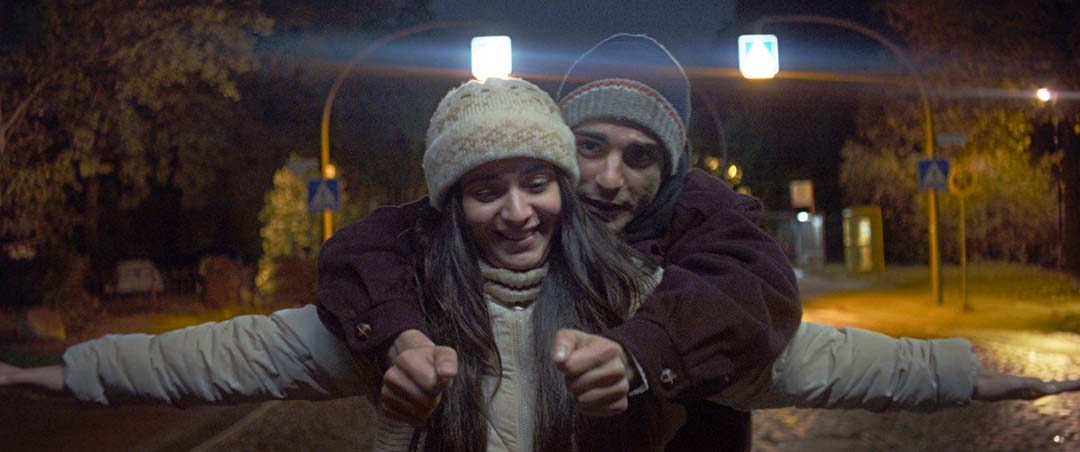
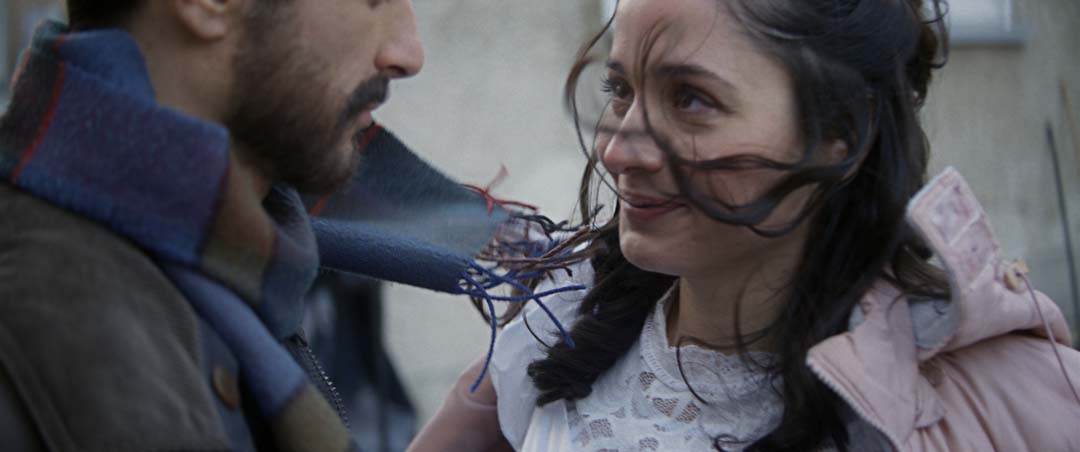
“We all know this person and this person changed the 21st century tremendously for the whole world."
Yeah, there is a real chemistry on screen and as we see this relationship evolve.
I wanted to talk to you a little bit more as you touched upon it about the way you shot the film in this organic process. Having a bare bones script but then wanting your actors to improvise and I suppose for you do you get a more authentic performance and more spontaneous by doing it that way?
Right, over the years. It’s my third film, it’s my third feature film for cinema and over the years have developed a kind of a style of how I proceed with the actors and how I get what I want. And what I want is an authentic performance and I found out that authentic when they are when they are not trained, not rehearsed the situation. I rehearse situations with them but I didn’t really rehearse the actual scene exactly as written in the script. So they got the script one month before we shot and I asked them to really not learn the lines but ask them to just understand the main conflict in the scenes and how their character is feeling with the situation, and then on set we started to free with the moment, with the conflict and sometimes it happened that it went in a totally different way and sometimes they created ideas how to show certain feelings or how to solve a conflict which they are in. Good performance really happens when they are alert and when they are there and when they are not comfortable actually. As soon as they are comfortable and they’ve learned their lines at home in front of the mirror this is awful, this what doesn’t make a good performance that’s for sure (laughs), but everybody does it like this I don’t know why (laughs).
But I imagine that comes from your documentarian background where everything is spontaneous. And for you watching these actors breathing life into these characters, must be really exciting?
Right, sometimes they forget the script or forget what I have written. Some actors can’t believe that I tell them. “Yeah I wrote the script for one and a half years, but now you are allowed to destroy it.” (Laughs) “You’re not allowed to say it as it is written.” (Laughs). “You need to say it with your own words.” But I need the process of writing the script to really understand what I want and where the journey leads us and where we need to go. Some improvisation I can’t use because it doesn’t make sense for the long arc for the film gonna have, but I also want to give them the feeling that everything is allowed. You can do whatever you want here, like surprise me.
Play!
Play! Exactly (laughs).
The film is told is told almost like chapters in a period of five years. Why is telling the film episodically the best way to tell the story?
For me it was important really to write a film about a relationship which is long, I didn’t want to have a relationship of one year. I wanted to show the audience the moment when they met, when they were innocent and when they fall in love, this really young and tender love what they have at the beginning. But how do you tell five years? You need to jump, so I interrupt with chapters and the chapter is always a year. And then I thought every year should feel a bit different, look a bit different and have a different atmosphere. So for example in the first year, the colours are very pastel, light, delicate colours. And there’s a lot of wind and clouds and we are outside in nature and everything is free and every things is open for them. And also their acting changed in every year because we shot un-chronologically they really need to know where they are and what happened before and what’s gonna happen later. Also the colours we chose or the patterns or the season actually in year two they are. They are already together for a year and it cold and they have big jackets and the hats, and you can’t see their faces because they are comfortable in their relationship so I thought I would put a lot on and make them cosy. The second year starts they are in a telephone cell, maybe some people remember. The takes place in the 90s very German, yellow telephone boxes which really is a small place and they are together in the small box and they call the parents of him. And also the look of their faces and all of the for example it was super important to have him change his face over the years. So he had two different beards, artificial beards, wigs, I think three wigs and two natural haircuts. So because we were shooting un-chronologically we need to change every day sometimes (laughs) and it’s amazing the work the make-up artist did very well because you really believe it’s real. I wanted him to change a lot because he is the character who also, his inner opinion is going to change tremendously in the film and so also I wanted him to change outside. And for her, she is my main character and we see everything from her perspective, through her eyes she doesn’t change so much, she wants the old relationship, she wants to keep on holding things, but we all know the world is changing every minute.
Watch full interview here
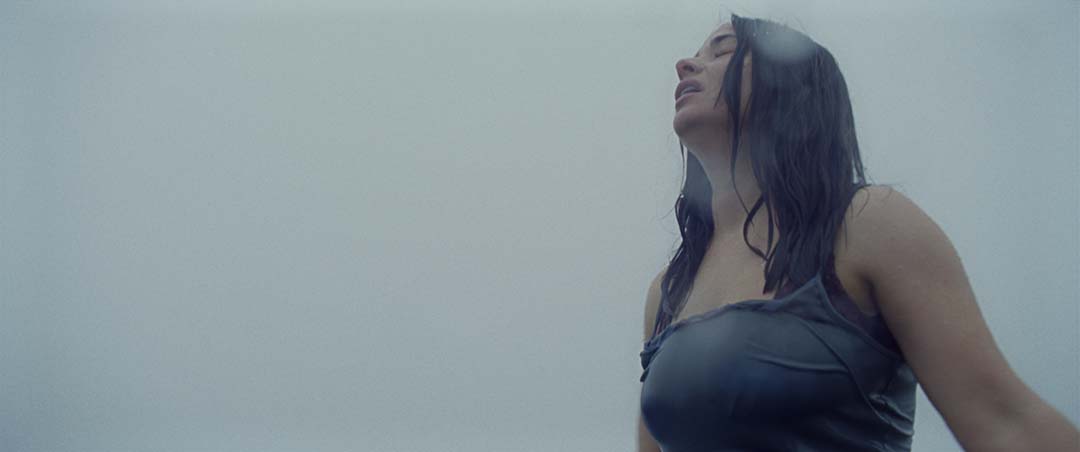
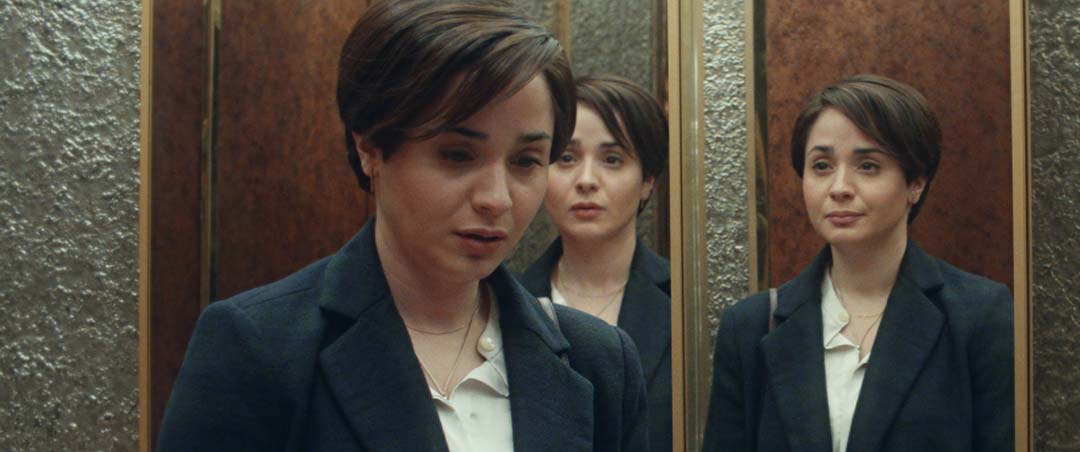
Copilot - Official Trailer
Claire Bueno
Claire Bueno is a film journalist, presenter and interviewer, having moderated BAFTA, Royal Television Society (RTS), Women in Film and Television (WFTV), and Apple Store Q&As and hosted Comic Con panel talks. Claire is the founder of Premiere Scene Magazine and has had the privilege of interviewing esteemed artists including Tom Cruise, George Clooney, Brad Pitt, Sir Anthony Hopkins, Sigourney Weaver, Emily Blunt, Samuel L Jackson, James Cameron and Andy Serkis.
As a media coach Claire works with leading personal publicists, HBO, Netflix, Sky, ITV, Penguin Random House, the BFI, DDA, MacMillan and Premier, offering practical coaching sessions and safe environment for talent to perfect their interview technique before facing the press. She has extensive experience working with emerging and seasoned professionals and where English is not their first language.
Additionally, Claire is the producer of the critically acclaimed feature documentary CLEANIN’ UP THE TOWN: Remembering Ghostbusters and the upcoming TOO HOT TO HANDLE: Remembering Ghostbusters II.
